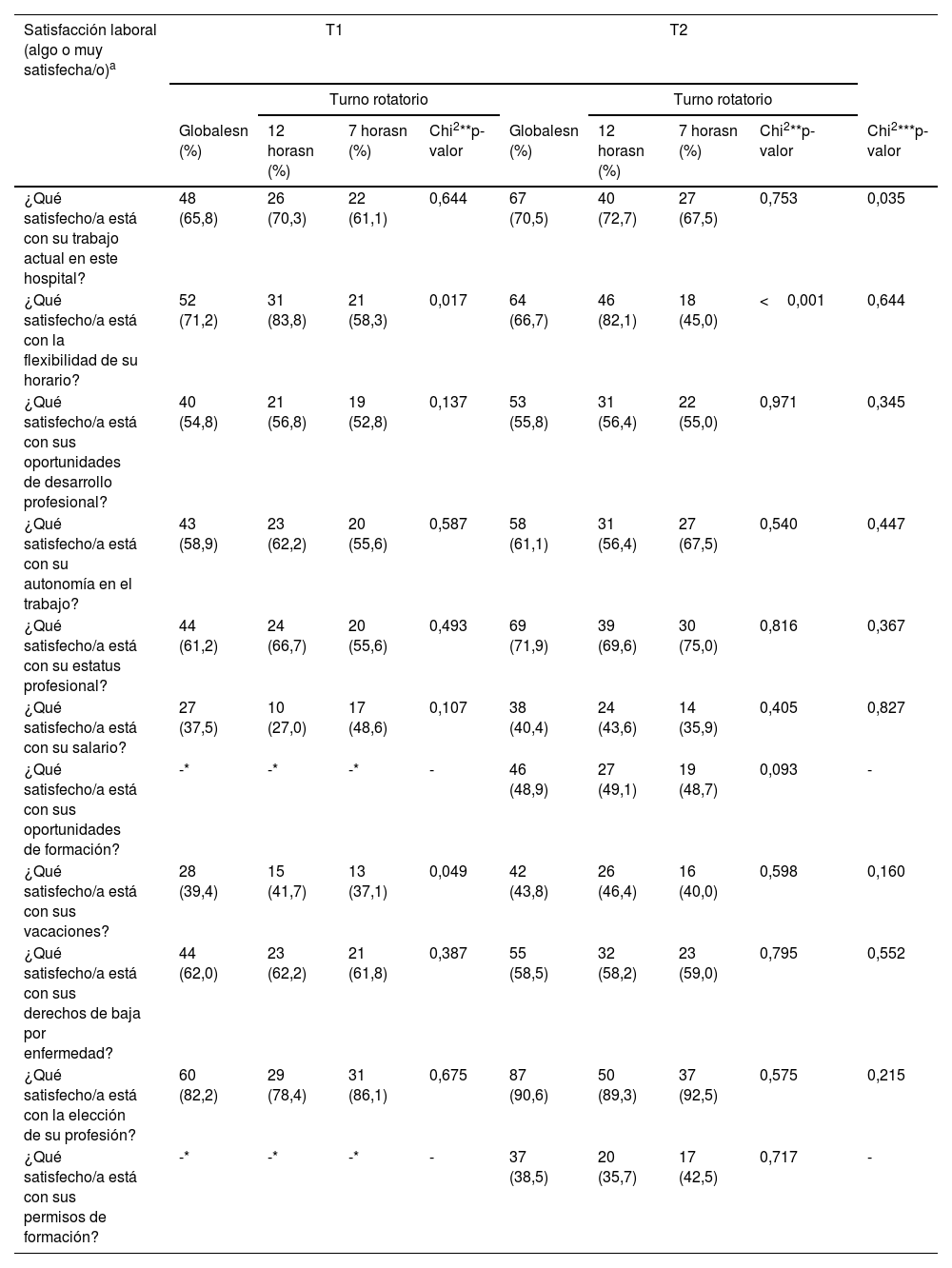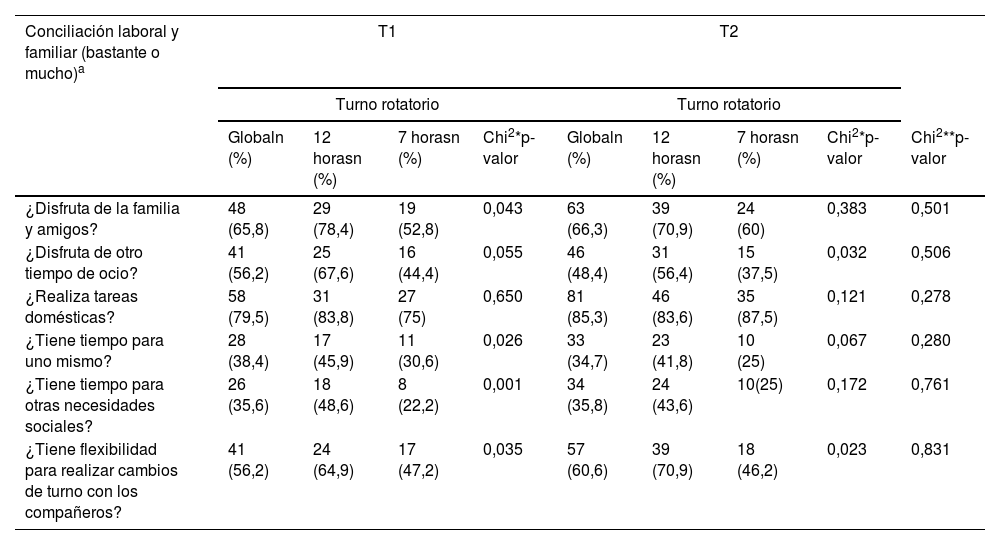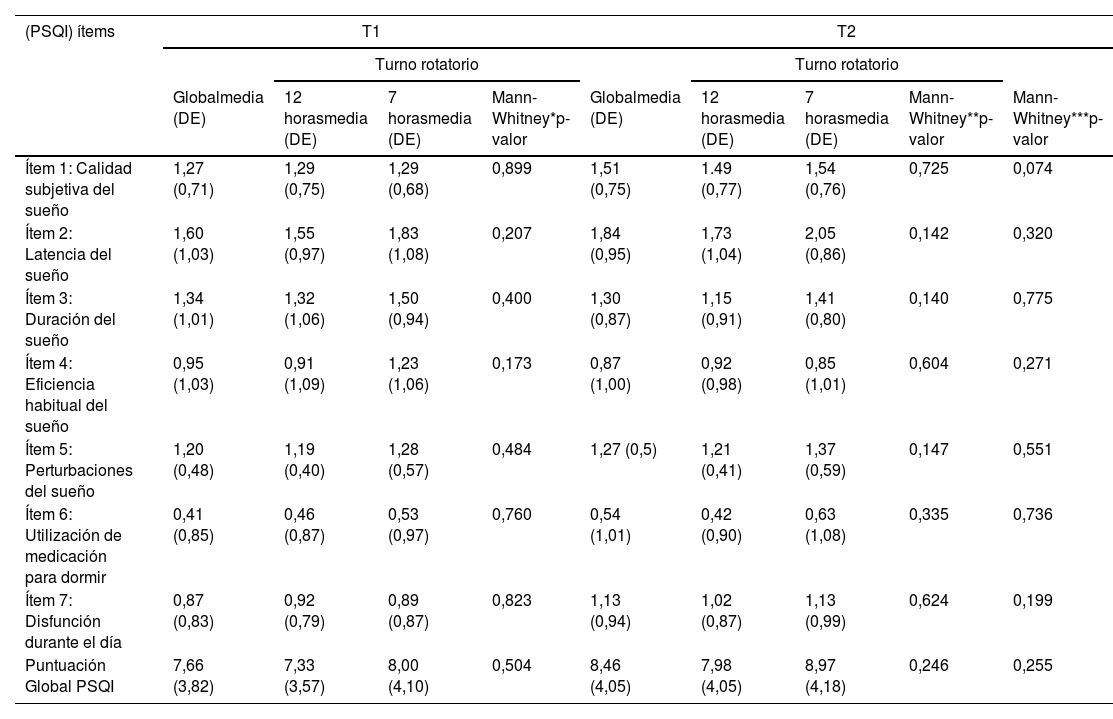Conocer la satisfacción laboral, conciliación laboral-familiar, calidad del sueño y burnout en el personal de enfermería tras la introducción del turno rotatorio de 12 horas en el servicio de Urgencias de un hospital de tercer nivel.
MetodoDiseño observacional transversal realizando la primera recogida (T1) en febrero de 2023 y la segunda recogida (T2) en octubre de 2023 en el personal de enfermería de Urgencias. Se recogieron datos sociodemográficos, de conciliación laboral y familiar, satisfacción laboral, el grado de burnout y la calidad del sueño.
ResultadosEn T1, contestaron el 66,7% (74) de profesionales,con una edad media de 44,72 años (DE: 10,60). El 50% se encontraban en un turno de 12 horas. En T2, contestaron el 91,9% (102) de profesionales, con edad media de 44,75 años (DE: 11,07). El 54,9% se encontraban en turno de 12 horas. El 71,2% en T1 y el 66,7% en T2, estuvieron algo o muy satisfechas/os con la flexibilidad de sus horarios de trabajo. Un 8,9% en T1 y un 10,3% tuvieron un alto burnout general. En T1, la puntuación media global del PSQI fue de 7,66 (DE: 3,82) y en T2 de 8,46 (DE: 4,05). Se encontraron diferencias significativas en cuanto a la conciliación laboral y familiar entre los diferentes turnos rotatorios analizados (p<0,05), y no significativos para el resto de variables.
ConclusionesEl personal de enfermería de urgencias prefiere los turnos de 12 horas ya que facilitan la conciliación laboral-familiar y no les afecta negativamente en el sueño, el burnout o la satisfacción laboral.
To know job satisfaction, work-family balance, sleep quality, and burnout in nursing staff after the introduction of the 12-hour rotating shift in the emergency department of a tertiary hospital.
MethodCross-sectional observational design carried out in February 2023 for the first collection (T1) and October 2023 for the second collection (T2) in emergency nursing staff. Sociodemographic data, work and family reconciliation, job satisfaction, degree of burnout, and sleep quality were collected.
ResultsIn T1, 66.7% (74) of professionals answered, with an average age of 44.72 years (SD:10.60). 50% were on a 12-hour shift. In T2, 91.9% (102) of professionals answered, with an average age of 44.75 years (SD11.07). 54.9% were on a 12-hour shift. 71.2% in T1 and 66.7% in T2 were somewhat or very satisfied with the flexibility of their work schedules. 8.9% in T1 and 10.3% had a high overall burnout. In T1, the average global PSQI score was 7.66 (SD:3.82) and in T2 it was 8.46 (SD:4.05). Significant differences were found in terms of work and family reconciliation between the different rotating shifts analyzed (p<0.05), and not significant for the rest of the variables.
ConclusionsEmergency nursing staff prefer 12-hour shifts as they facilitate work-family reconciliation and do not negatively affect sleep, burnout, or job satisfaction.











